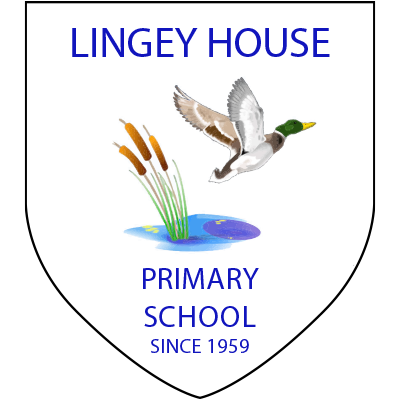History
History
Subject Lead: Mrs A Clydesdale

Curriculum Rationale - History
Intent
At Lingey House, our History curriculum has been designed to engage and enthuse our children with the people and events of the past and to develop meaningful skills as historians, enabling them to understand how the past has helped to shape the world they live in today.
Across our History curriculum, we aim to:
-
Develop their interest in the past, arousing their curiosity and motivation to learn.
-
Develop chronological understanding and nurture the children’s interest in the past.
-
Develop their skills in enquiry, analysis, evaluation, and argument whilst enabling them to interpret and understand the past and communicate historically.
-
Develop their knowledge of inspirational and significant historical figures and themes from our local area to illuminate history, increase pride of our heritage and raise aspiration.
Implementation
Our planning for History has a deliberate approach to sequencing the curriculum and the choice of content focus. At all stages, the curriculum links to previous content and concepts and identifies later links with opportunities to revisit key periods of time. At its heart, is how the events of the past have shaped the region and country we live in today.
Early Years
In EYFS, the focus is on the child’s immediate living memory and developing an understanding of old and new, past and present and identifying change. History is encouraged from the day our children start school –when they are encouraged to talk about their own life and their family’s history. Our children will be increasingly aware of the changes in routines during different times of the day and seasons of the year. These changes in times have an impact on what activities they can do (sleep, eat, play, home, holidays etc) as well as what they wear and what they celebrate. We encourage children to share all of their thoughts and knowledge and this can act as a springboard for independent exploration and discovery. This in turn will give them a natural curiosity about what has happened in the past and begin to make sense of their own life and other significant people in their lives.
Key Stage 1
In KS1, the sequence of learning moves from history within the child’s living memory to looking at familiar features in the recent past and then gradually beyond living memory. The achievements of significant individuals including those in the North East add a further dimension. Pupil’s prior knowledge is built upon and helps lay the foundations for future learning. Our KS1 pupils will develop an awareness of the past, using common words and phrases relating to the passing of time. They will know where the people and events they study fit within a chronological framework and identify similarities and differences between ways of life in different periods. They will develop and use a wide vocabulary of everyday historical terms. They will ask and answer questions, choosing and using parts of stories and other sources to show that they know and understand key features of events. Our children will understand some of the ways we can find out about the past and identify different ways in which the past can be represented.
In Key Stage 1, our pupils are taught about:
-
Changes within living memory
-
Events beyond living memory that are significant nationally or globally
-
The lives of significant individuals in the past who have contributed to national and international achievements
-
Significant historical events, people and places in their own locality
A history topic is explored every term. The children have an opportunity to delve into a new area of learning and develop their historical enquiry skills. Wherever possible, the children have access to artefacts and primary and secondary sources. They will begin to gain a chronological understanding.
Key Stage 2
In KS2, our curriculum extends the children’s knowledge and understanding of British and world history in line with the National Curriculum. Alongside this, a thread of local history continues to allow the children to uncover how their home became the place it is today. Children will continue to develop a chronologically secure knowledge and understanding of British, local and world history, establishing clear narratives within and across the periods they study. They will note connections, contrasts and trends over time and develop the appropriate use of historical terms. They will regularly address and sometimes devise historically valid questions about change, cause, similarity and difference, and significance. They will construct informed responses that involve thoughtful selection and organisation of relevant historical information. They will understand how our knowledge of the past is constructed from a range of sources.
In Key Stage 2, our pupils are taught about:
-
Changes in Britain from the Stone Age to the Iron Age
-
The Roman Empire and its impact on Britain
-
Britain’s settlement by Anglo-Saxons and Scots
-
Viking and Anglo-Saxon struggle for the Kingdom of England to the time of Edward the Confessor
-
local history study
-
a study of an aspect or theme in British history that extends pupils’ chronological knowledge beyond 1066
-
the achievements of the earliest civilizations
-
Ancient Greece – a study of Greek life and achievements and their influence on the western world
-
non-European society that provides contrasts with British history – one study chosen from: early Islamic civilization, including a study of Baghdad c. AD 900; Mayan civilization c. AD 900; Benin (West Africa) c. AD 900-1300
Impact
Our children will become confident historians with an enthusiasm for the past and a clearer understanding of how this has moulded their lives today. They will become more confident using their enquiry and literacy skills whist becoming more respectful of other nations, cultures and traditions. We also want children to question the impact of their learning and have posed the question ‘How did people in the past shape our world today?
Overview:

